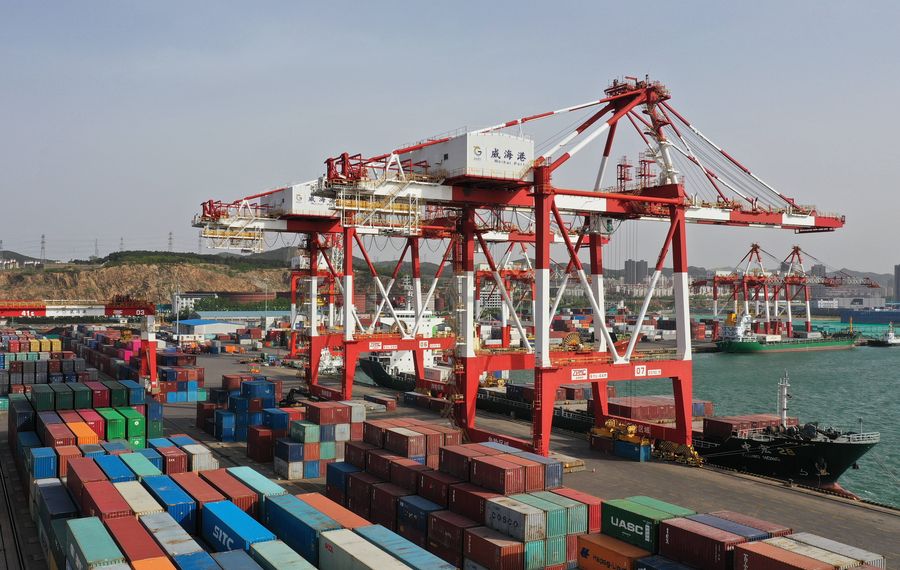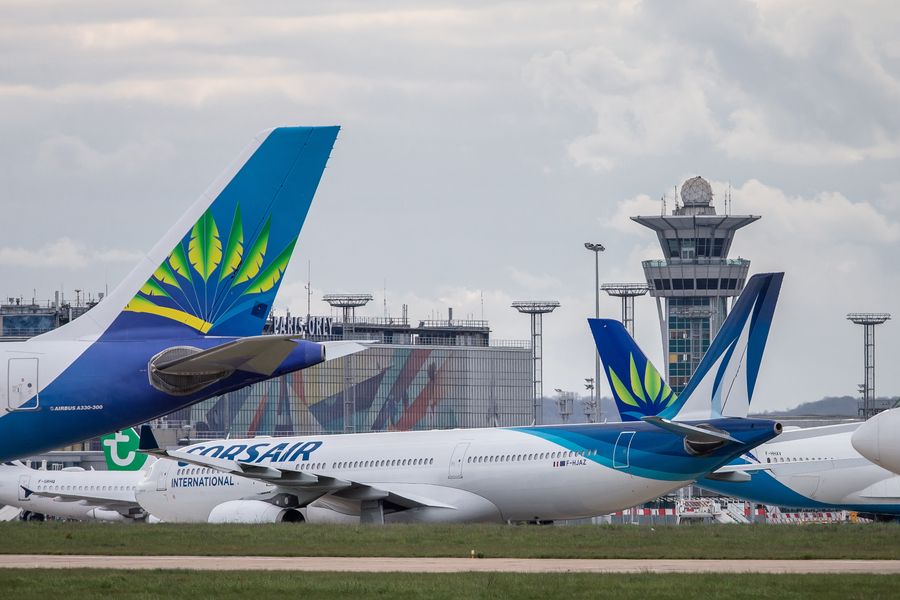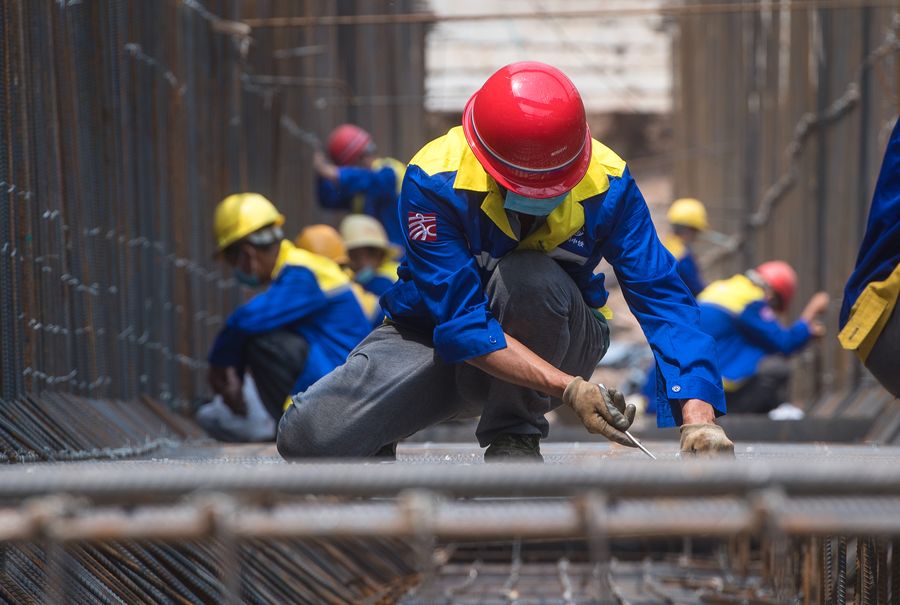
Aerial photo taken on May 13, 2020 shows the container terminal of Weihai Port in Weihai City, east China's Shandong Province. (Xinhua/Zhu Zheng)
To rid the ailing global economy of the pains inflicted by the coronavirus outbreak, governments worldwide should:
- Coordinate macroeconomic policies
- Maintain stable global supply chains
- Cut tariffs, remove trade barriers and support the smooth flow of trade
BEIJING, May 18 (Xinhua) -- The COVID-19 pandemic has so far paralyzed economic activities around the world, and the prospect for a catastrophic economic crunch is hovering.
In its mid-April projection, the International Monetary Fund braced the world for the "worst recession" since the Great Depressions of the 1930s. And the Asian Development Bank estimated on Friday that the global economy could suffer between 5.8 trillion and 8.8 trillion U.S. dollars in losses as a result of the COVID-19 pandemic.
Many countries have already rolled out a series of monetary and fiscal interventions, as well as plans to reopen their economies. Yet given the colossal hit on real economies and the highly interrelated global financial system, saving a globalized economy this time requires even stronger global collaboration.

Photo taken on April 30, 2020 shows the empty Piccadilly Circus in London, Britain. (Photo by Ray Tang/Xinhua)
History has shown what happens if global coordination is absent amid economic turmoil.
In the Great Depression of the 1930s, a severe outbreak of protectionist trade policies worldwide led to a sharp contraction in global trade, followed by a decade-long lackluster rebound in trade even when the world economy started to recover.
Fortunately, in the immediate aftermath of the 2008 financial crisis, which originated in the United States, major economies resisted calls for inward-looking measures, and coordinated a global response to reposition the world economy toward recovery and eventual growth.
But the past few years have witnessed setbacks to an open world economy with the incumbent U.S. administration making frequent protectionist waves, waging tariff offensives against almost all of its major trading partners, and seeking to cripple the world's rules-based multilateral trading system.

Aircrafts are parked on the tarmac at Paris Orly airport in France, April 3, 2020. (Photo by Aurelien Morissard/Xinhua)
As the current health crisis continues to shatter economies and disrupt global supply chains, some U.S. politicians have been intensifying isolationist and protectionist measures like restricting the trade flow of personal protective equipment, further raising tariffs to shore up manufacturing capability at home, and fiddling with the idea of "decoupling" from China. They are trading long-term world prosperity for short-term political gains.
The international community should be far-sighted and strive for a more cohesive effort to rid the ailing global economy of the pains inflicted by the coronavirus outbreak.
The first job is for governments worldwide to coordinate their macroeconomic policies.
At the extraordinary Group of 20 (G20) leaders' summit in March, members have pledged to use all available policy tools to minimize the economic and social damage from the pandemic, restore global growth, maintain market stability, protect workers and businesses, and continue to conduct bold and large-scale fiscal support. These should be the consensus among the entire global community.
The second commitment should be maintaining stable global supply chains.
The coronavirus pandemic may prompt some businesses to take some actions to ward off future disruptions, yet it will not rip apart existing global supply chains, and reverse the general trend of globalization.

People work at a construction site of a utility tunnel in Wuhan, central China's Hubei Province, April 30, 2020. (Xinhua/Xiao Yijiu)
With its own epidemic under control, China is returning production back to normal. It has also committed to increasing its supply of anti-epidemic goods, pharmaceutical ingredients and other supplies to the international market.
Governments worldwide should also help inject elements of stability and confidence in the global network of sourcing and production on the basis of controlling the outbreak in their respective countries.
The third task is for governments to cut tariffs, remove trade barriers and support the smooth flow of trade.
In this regard, governments should stop using the pandemic as an excuse to erect new impediments to free trade. Instead, they should well heed the lessons of the economic crash of the 1930s. And one immediate job is to reduce tariff and non-tariff barries for the transactions of urgently needed medical supplies, and support such multilateral agencies and platforms as the World Trade Organization, the World Health Organization and the G20 in playing their respective critical roles.
An increasingly interconnected world means crises may often go beyond national borders, thus making coordinated global responses imperative. Choosing to fight alone will simply make matters worse. ■



